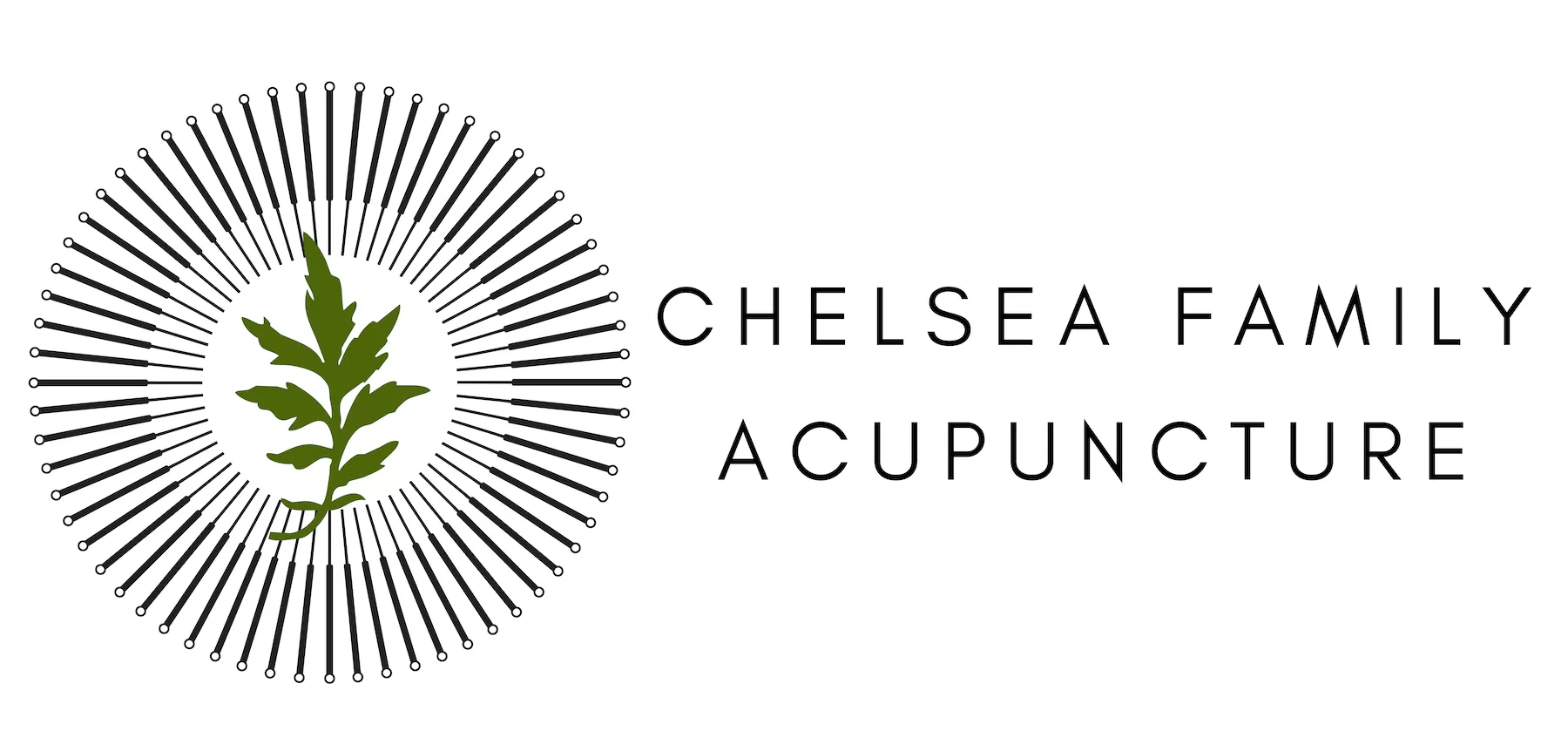
Herbal therapy has been championed by China and other Eastern countries for centuries. As Western medicine looks for more natural alternatives with fewer side effects, herbal medicine is gaining a foothold in the treatment of several common health concerns. In fact, The Cleveland Clinic has now added a Chinese Herbal Pharmacy along with acupuncture. Read more here.
Herbs are prescribed, powerful medicine, and just like any prescription, it is important to get an evaluation from a qualified practitioner before taking anything. Your acupuncturist will conduct a complete health history with you before your first examination to determine what your health concerns are and how herbs might best be used, along with your acupuncture treatments.
Here at Chelsea Family Acupuncture, we Classical Chinese medicine practitioners (CCM) and are trained clinical herbalists. We create customized herbal formulas for our patients more often than not. Customized is key, as the formulas are made according to your specific symptom presentation and diagnosis. As your symptoms change, so does your diagnosis and so should your formula. This is how you heal.
It is not a static “constitutional” medicine or a one size fits all, but one that fits the individual, to encourages change and health for each person.
The difference between Classical Chinese herbalism and western medicine is that we recognize that two people who, for instance, have the same western diagnosis of hypothyroidism, will have some common symptoms, but for the most part will have different symptom presentations. All symptoms must be treated in order for the complaint to resolve. Built in to every formula is the awareness of the digestion, as that is the center of health, we call it the “wheel of life.” In order to live a healthy life, you have to eat, digest, absorb and eliminate.
Herbal medicine comes in a variety of forms. You might receive it as capsules or granules, raw herbs to brew into tea, tinctures, non-alcoholic glycerites, oxymels, or a topical salve, paste, wash, soak or linament.
What the Research Says
There are some exciting recent research studies about herbal medicine but one of the most promising investigated the use of Chinese herbs and acupuncture to improve cognitive function in Alzheimer’s disease. Researchers for this study, published in 2021, ultimately proposed “that these two approaches be integrated to improve outcomes for AD patients.”
The abstract outlined it best, saying, “Alzheimer’s disease (AD) is a neuro-degenerative disease with a variety of causes. All illnesses come from a variety of causes, and heal best when those causes and the individual symptom presentation are addressed. This is the strength of customized health care, where these varied causes and symptoms can be correctly diagnosed and treated.
In Chines, during the height of the pandemic, most people were given Chinese herbs, and some in conjunction with western medicine. Because of this, the number of Long COVID cases in the east is very low compared to here in the west. During the lock-down phase, we at Chelsea Family Acupuncture pivoted to teleheath consultations for customized herbal formulas. Once things opened up again, we supported many people through Long COVID with herbs.
From a CCM perspective, at the core of health is the “wheel of life,” our digestive system. In a healthy system, we make essential body fluids for lubrication and organ function–like gas in the tank, makes the engine go. When the engine runs optimally, we make blood, hormones, energy, and more body fluids. If the wheel of life is compromised by diet, over-exertion, high stress, trauma, shock, loss, we stop producing the goods we need, and the body starts to produce and store pathological material that blocks absorption and is difficult to eliminate. This storing of pathological material accumulates and causes illness.
What can Herbs Treat?
Chinese herbal medicine combined with acupuncture, can treat a variety of health concerns including Long COVID, seasonal allergies, the side effects of cancer treatments, autoimmune disorders, digestive issues, infertility, menopause, and sleep disorders.
As for the safety of taking herbs, The Cleveland Clinic has done extensive research on the safety of herbs and notes that, “over a 7-year study, we did not have a single lab result show kidney or liver problems. And out of 333 patients, we had just five very mild cases of itching or shortness of breath due to allergic reactions.” Make sure you are in the hands of a trained and skilled clinical herbalist.
What to Expect
At your first appointment, your acupuncturist will go over a detailed health history, including current and past health issues. They will discuss any medications you are currently taking because some herbs and drugs may not interact well together. Your whole health team, doctor and acupuncturist, should be checking your progress regularly to ensure everything is progressing normally.
If you are curious what herbal therapy might do for you, talk to your acupuncturist today to see what options are available to you. It just might be the natural solution you’ve been looking for.


